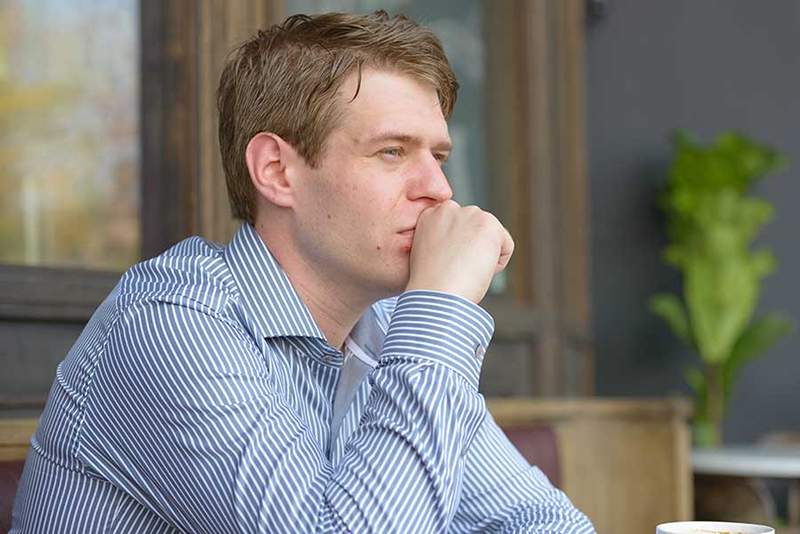3 tips for stress and anxiety

- 4096
- 395
- Lorenzo West I
Alleviate stress and anxiety require time, but if we look for some small (or large) tricks to face them, Here we offer 3 tips for stress and anxiety. When we face a tension situation such as an exam, it is normal to feel true and stress and anxiety about this event. In fact, a certain level of stress helps us to be active to start studying and not falling into the neglect. However, when the exam has already passed and the level of activation remains the same when we are, for example, taking a soda with friends, something may be failing.
Do we really know how to disconnect from the past and the future and remain in the present? To what extent are we able to control our emotions and our thoughts? The doctor in molecular biology and Buddhist monk Matthieu Ricard, offers us 3 tips for stress and anxiety. It is important to note that Ricard has been recognized as the happiest man on the planet, so his advice will be very useful.
Content
Toggle- 3 tips for stress and anxiety
- 1. Eliminate concerns
- 2. One thing at a time
- 3. A little meditation
- Final reflection
3 tips for stress and anxiety
1. Eliminate concerns
At this point, Matthieu Ricard refers to the wise Indian Shantideva. As Shantideva expressed in his work "The practice of Bodisattva": "If you have a remedy, what reason is there to be dejected? And if you don't have it, what does grief benefit?". Both Shantideva and Ricard show us that dejection and grief does not make much sense. Since childhood they teach us that when a situation travels through our mind, we must worry about it constantly. If this concern does not concern us much of our time gives us the feeling that we really don't care.
The great teachers go further and observe the situation. It has a solution? If it has a solution, even if it is difficult, why be dejected? It is important to fix the concept "dejected". At no time do they talk about the fact that we stop looking for the solution or we do not get down to work, but that they emphasize that an excessive concern lacks foundation. On the other hand, if something has no solution, What does grief benefit from us? Once again they talk about grief, not sadness. Sadness is an adaptive emotion that helps us integrate emotions when, for example, a relative dies. But being dejected goes further, it is about the lack of motivation, forces and happiness. Does it make sense to feel this way if something really has no solution?
2. One thing at a time
In a society that demands so much of us, it is not strange that we see ourselves carrying out several things at the same time. For example, when we are in front of the computer, it is common for us to have several opened internet applications and eyelashes: the newspaper, the work page, one or two social networks, etc. In addition to this, we have the mobile phone near and also distracts us. So that, Instead of focusing on one thing, we disperse among several stimuli And in the end our performance is worse than if our attention focuses on a single task.

When we carry out several tasks at the same time it is known as "multitasking". Multirea requires alternating attention, that is, moving from one task to another. We usually do this act with some speed, however, we wear more than we think. In addition to getting tired of the account, it makes the performance of our task not the most optimal. What can we do about it? Do one thing at a time. When we finish one task, we move on to the next.
3. A little meditation
The last of the 3 tips for stress and anxiety that Matthieu Ricard offers us is to perform a little meditation every day. As Ricard states: "As you 'examine' your anxiety with the eye of full attention, it will lose its power. Because? Because The part of your mind that is aware of anxiety is not anxious in itself ". This statement may seem strange if we are not familiar with meditation, since, how is it possible that a part of my mind is not anxious if I feel anxiety? Explain the mind according to the Buddhist teachings required enough lines, but as a summary, it can be said that the observer and the observed. The observer would be the non -anxious mind and the anxious mind observed.
In this way, when we feel anxiety we have the ability to realize that we are in a displaced state and We are able to observe this anxiety. If this were not possible, that is, if there was also no mind that observes, we could not fall into the account of our moods since we would become them. So that, Through meditation, we are able to distance ourselves from stress and anxiety and observe them from distance. Different studies claim that if we meditate twenty minutes a day, in just eight weeks there are changes at the brain level. Some changes that consist of reducing the levels of depression, stress and anxiety and increasing the levels of peace, happiness and tranquility.
Final reflection
As the popular saying affirms: "It is better to prevent than cure". In this case, it is important that we control both stress and anxiety before they manifest exaggeratedly. In psychology, it is common for people in general to go for help when the situation goes out of hand. Thus, It is important to maintain a lifestyle that seeks to maintain mental and physical balance. In this way, through these 3 tips for stress and anxiety, we can learn to control our emotional state a little more. So when we present to a stressful situation, we will know how to face it so that we do not get carried away by excessive stress and anxiety.

